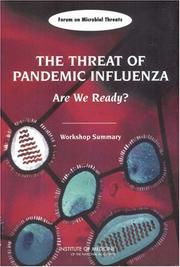| Listing 1 - 10 of 19496 | << page >> |
Sort by
|
Book
ISBN: 9782810906192 Year: 2017 Publisher: Rennes : Presses de l'EHESP,
Abstract | Keywords | Export | Availability | Bookmark
 Loading...
Loading...Choose an application
- Reference Manager
- EndNote
- RefWorks (Direct export to RefWorks)
Les politiques européennes visant la jeunesse restent largement méconnues, alors qu'elles sont en expansion dans tous les pays européens. Cet ouvrage éclaire sur le positionnement actuel de la Commission européenne à l'égard de la jeunesse (préoccupations relatives au chômage, à la pauvreté des jeunes, encouragement à la mobilité internationale...). Il permet de comprendre les relations qui se nouent entre les instances européennes et les pays membres (quels rôles jouent les institutions européennes en matière de jeunesse ? Qui en sont les acteurs ?) et met en évidence la variété des situations des jeunes, des politiques publiques et des actions, permettant ainsi aux acteurs de ce secteur de développer leur pratique et de renforcer leurs réseaux
Youth --- Young adults --- Government policy --- Government policy
Book
Year: 1965 Publisher: Washington, D.C. : Library of Congress, Law Library, Far Eastern Law Division,
Abstract | Keywords | Export | Availability | Bookmark
 Loading...
Loading...Choose an application
- Reference Manager
- EndNote
- RefWorks (Direct export to RefWorks)
Abortion --- Abortion --- Government policy --- Government policy
Book
ISBN: 0309311721 0309311705 Year: 2014 Publisher: Washington, District of Columbia : National Academies Press,
Abstract | Keywords | Export | Availability | Bookmark
 Loading...
Loading...Choose an application
- Reference Manager
- EndNote
- RefWorks (Direct export to RefWorks)
"The United States has been a generous sponsor of global health programs for the past 25 years or more. This investment has contributed to meaningful changes, especially for women and children, who suffer the brunt of the world's disease and disability. Development experts have long debated the relative merits of vertical health programming, targeted to a specific service or patient group, and horizontal programming, supporting more comprehensive care. The U.S. government has invested heavily in vertical programs, most notably through the President's Emergency Plan for AIDS Relief (PEPFAR), its flagship initiative for HIV and AIDS. PEPFAR and programs like it have met with good success. Protecting these successes and continuing progress in the future depends on the judicious integration of vertical programs with local health systems. A strong health system is the best insurance developing countries can have against a disease burden that is shifting rapidly and in ways that history has not prepared us for. Reaching the poor with development assistance is an increasingly complicated task. The majority of the roughly 1 billion people living in dire poverty are in middle-income countries, where foreign assistance is not necessarily needed or welcome. Many of the rest live in fragile states, where political volatility and weak infrastructure make it difficult to use aid effectively. The poorest people in the world are also the sickest; they are most exposed to disease vectors and infection. Nevertheless, they are less likely to access health services. Improving their lot means removing the systemic barriers that keep the most vulnerable people from gaining such access. Investing in Global Health Systems discusses the past and future of global health. First, the report gives context by laying out broad trends in global health. Next, it discusses the timeliness of American investment in health systems abroad and explains how functional health systems support health, encourage prosperity, and advance global security. Lastly, it lays out, in broad terms, an effective donor strategy for health, suggesting directions for both the manner and substance of foreign aid given. The challenge of the future of aid programming is to sustain the successes of the past 25 years, while reducing dependence on foreign aid. Investing in Global Health Systems aims to help government decision makers assess the rapidly changing social and economic situation in developing countries and its implications for effective development assistance. This report explains how health systems improvements can lead to better health, reduce poverty, and make donor investment in health sustainable"--

ISBN: 1280033789 9786610033782 9264073221 9264058567 Year: 1999 Publisher: Paris OCDE
Abstract | Keywords | Export | Availability | Bookmark
 Loading...
Loading...Choose an application
- Reference Manager
- EndNote
- RefWorks (Direct export to RefWorks)
Nuclear Energy Data is the OECD Nuclear Energy Agency's annual compilation of basic statistics on electricity generation and nuclear power in OECD countries.
Book
ISBN: 9264259597 926425854X 9264258531 Year: 2016 Publisher: Paris : OCDE,
Abstract | Keywords | Export | Availability | Bookmark
 Loading...
Loading...Choose an application
- Reference Manager
- EndNote
- RefWorks (Direct export to RefWorks)
Cette série de rapports suit et évalue l'évolution des politiques agricoles à travers les six continents, notamment les 34 pays membres de l'OCDE, les 7 États de l'Union européenne qui ne sont pas membres de l'OCDE, et 9 économies émergentes : Afrique du Sud, Brésil, République populaire de Chine, Colombie, Indonésie, Kazakhstan, Fédération de Russie, Ukraine et Viêt Nam. L'OCDE utilise un système cohérent de mesure et de classification du soutien agricole - les estimations du soutien aux producteurs et aux consommateurs (ESP et ESC), et les indicateurs connexes. Ceux-ci offrent une bonne compréhension des politiques agricoles dont la complexité va croissant et servent de base à leur suivi et à leur évaluation. Sommaire Guide du lecteurRésuméChapitre 1. Évolution des politiques et du soutien agricoleChapitre 2. Aperçus par paysAfrique du SudAustralieBrésilCanadaChiliChine (Rép. Pop. de)ColombieCoréeÉtats UnisFédération de RussieIndonésieIslandeIsraëlJaponKazakhstanMexiqueNorvègeNouvelle ZélandeSuisseTurquieUkraineUnion européenneViet Nam
Book
ISBN: 9264260897 9264252150 9264252169 Year: 2016 Publisher: Paris : Organization for Economic Cooperation & Development,
Abstract | Keywords | Export | Availability | Bookmark
 Loading...
Loading...Choose an application
- Reference Manager
- EndNote
- RefWorks (Direct export to RefWorks)
Tendances et politiques du tourisme, publié tous les deux ans, analyse les performances du tourisme et les principales tendances, initiatives et réformes liées aux politiques du tourisme pour 50 pays de l'OCDE et pays partenaires, en fournissant les données et analyses les plus récentes.

ISBN: 0309095042 9786610173716 1280173718 0309546850 0309165504 Year: 2005 Publisher: Washington, D.C. : National Academies Press,
Abstract | Keywords | Export | Availability | Bookmark
 Loading...
Loading...Choose an application
- Reference Manager
- EndNote
- RefWorks (Direct export to RefWorks)
Influenza --- Epidemiology. --- Government policy
Book
ISBN: 1412352274 Year: 2006 Publisher: Chicoutimi : J.-M. Tremblay,
Abstract | Keywords | Export | Availability | Bookmark
 Loading...
Loading...Choose an application
- Reference Manager
- EndNote
- RefWorks (Direct export to RefWorks)
Terrorism --- Terrorism. --- Government policy.
Book
ISBN: 0309440602 0309440629 Year: 2016 Publisher: Washington, District of Columbia : The National Academies Press,
Abstract | Keywords | Export | Availability | Bookmark
 Loading...
Loading...Choose an application
- Reference Manager
- EndNote
- RefWorks (Direct export to RefWorks)
Children --- Families --- Government policy
Book
ISBN: 1908857811 190885720X Year: 2020 Publisher: London
Abstract | Keywords | Export | Availability | Bookmark
 Loading...
Loading...Choose an application
- Reference Manager
- EndNote
- RefWorks (Direct export to RefWorks)
Provincialising Nature: Multidisciplinary Approaches to the Politics of the Environment in Latin America offers a timely analysis of some of the crucial challenges, contradictions and promises within current environmental discourses and practices in the region. This book shows both challenging scenarios and original perspectives that have emerged in Latin America in relation to the globally urgent issues of climate change and the environmental crisis. Two interconnected analytical frameworks guide the discussions in the book: the relationship between nature, knowledge and identity and their role in understanding recent and current practices of climate change and environmental policy. The different chapters in this volume contribute to this debate by offering multidisciplinary perspectives on particular aspects of these two frameworks and through a multidirectional outlook that links the local, national, regional and transnational levels of inquiry across a diverse geographical spectrum.
| Listing 1 - 10 of 19496 | << page >> |
Sort by
|

 Search
Search Feedback
Feedback About UniCat
About UniCat  Help
Help News
News